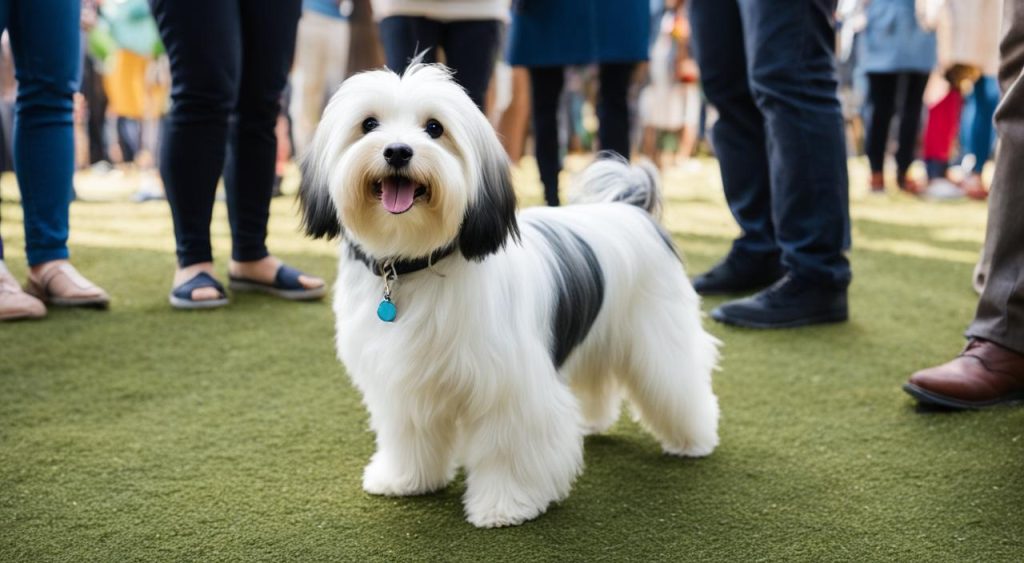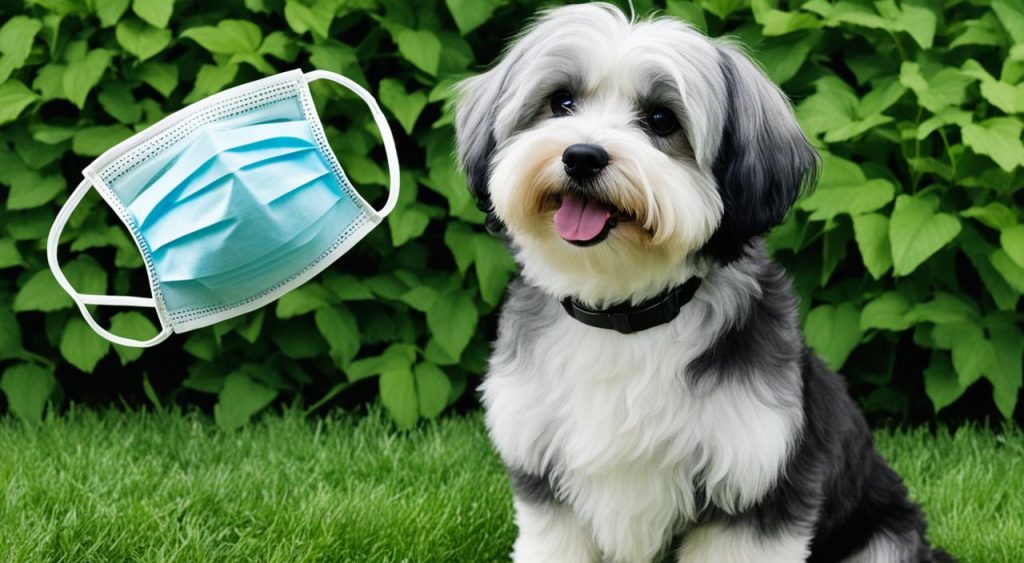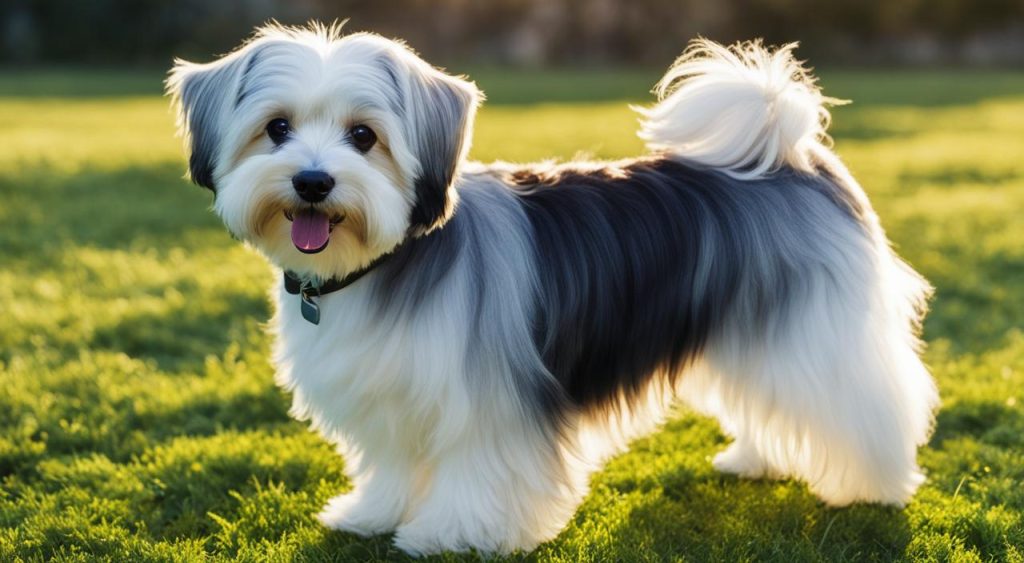The Havanese breed is known for its friendly, adaptable, and loving nature towards people and other animals. With a moderate-high energy level, they thrive on being the center of attention. While Havanese dogs are not inherently aggressive, certain factors can contribute to aggression in their behavior.
The temperament, behavior, and personality of Havanese dogs are generally gentle and sociable. However, it is crucial to understand the potential triggers and causes of aggression to ensure a safe and harmonious environment for both your pet and those around them.
Key Takeaways:
- Havanese dogs are not known to be naturally aggressive.
- Factors such as lack of socialization, separation anxiety, traumatic events, illnesses, fear or feeling threatened, and lack of proper training can contribute to aggression.
- Signs of aggression in Havanese dogs include excessive barking, growling, biting, snapping, and aggressive posturing.
- Consulting with a professional trainer or behaviorist is recommended if your Havanese displays signs of aggression.
- Positive reinforcement-based training, identification of the root cause, structured routines, regular exercise, mental stimulation, and reinforcement of desired behavior can help manage and reduce aggression in Havanese dogs.
Signs of Aggression in Havanese Dogs
Aggression in Havanese dogs is not a common trait, but it can occur under certain circumstances. It is essential for dog owners to be aware of the signs of aggression in their Havanese companions to address any underlying issues promptly and effectively.
Some signs of aggression in Havanese dogs include:
1. Excessive barking: Havanese dogs may bark excessively when feeling threatened or agitated, displaying their discomfort through vocalization.
2. Growling: Growling is a clear warning sign that a Havanese dog is feeling hostile or uncomfortable in a particular situation.
3. Biting and snapping: Aggression can lead Havanese dogs to resort to biting or snapping in an attempt to protect themselves or assert dominance.
4. Aggressive posturing: Havanese dogs may bare their teeth, lunge forward, or adopt a defensive stance when feeling threatened or provoked.
If you notice any of these signs of aggression in your Havanese dog, it is crucial to take action to address and manage the behavior accordingly. Aggression can be a symptom of underlying issues such as fear, anxiety, or inadequate socialization. Seeking professional guidance from a trainer or behaviorist experienced in dealing with aggression in dogs is highly recommended.
Remember that aggressive behavior should never be ignored or dismissed, as it can potentially escalate and pose risks to both dogs and humans. By addressing signs of aggression in Havanese dogs promptly, you can ensure the safety and well-being of your furry friend.
Causes of Aggression in Havanese Dogs
Several factors can contribute to aggression in Havanese dogs. Lack of socialization, especially during the critical socialization period, can lead to fear and anxiety, which may result in aggression. Separation anxiety, caused by being left alone for long periods, can also lead to aggression as a means of seeking attention. Traumatic events, such as an attack by another dog, can result in fear-based aggression. Additionally, illnesses or pain can cause a dog to become more irritable and reactive. Fear or feeling threatened can also trigger aggressive behavior in Havanese dogs. Finally, lack of proper training and reinforcement of good behavior can contribute to the development of aggressive tendencies.
How to Handle Aggression in Havanese Dogs
If your Havanese is displaying signs of aggression, it is crucial to address the issue promptly and effectively. One of the most effective approaches is enrolling your dog in positive reinforcement-based training classes. These classes can help address and modify aggressive behavior in a safe and controlled environment.
Identifying the root cause of the aggression is essential. This may require working closely with a professional trainer or behaviorist who specializes in dealing with aggression in Havanese dogs. They can help determine the underlying factors contributing to your dog’s aggressive behavior and develop a tailored training plan.
In addition to training, creating a structured routine is vital in managing and reducing aggression in Havanese dogs. Providing regular exercise and mental stimulation helps channel their energy in a positive way. Engaging in activities such as obedience training, puzzle toys, and interactive playtime can also help divert their focus from aggressive behaviors.
When handling aggression, it is crucial to remember that punishment should never be used as a means of addressing the issue. Punishment can escalate the behavior and create more fear or aggression in your Havanese. Instead, focus on reinforcing positive behavior through rewards, treats, and praise.
While training and behavior modification techniques can be effective, it is important to consult with a veterinarian to rule out any underlying health issues that may be contributing to the aggression. They can provide a thorough examination and offer guidance on potential medical interventions or treatments that may help address the aggression.





